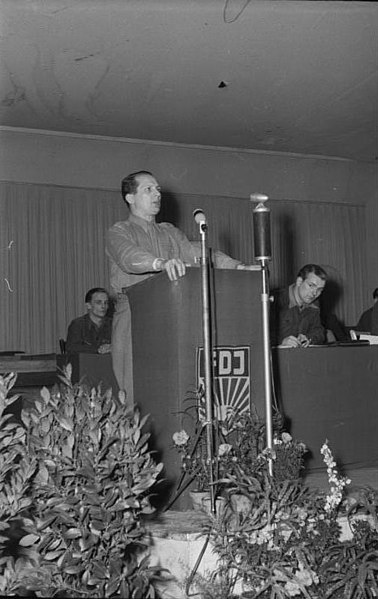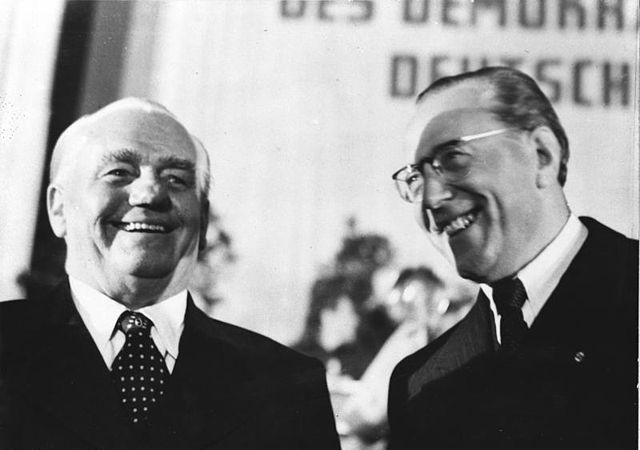Erich Ernst Paul Honecker was a German communist politician who led the German Democratic Republic from 1971 until shortly before the fall of the Berlin Wall in November 1989. He held the posts of General Secretary of the Socialist Unity Party of Germany (SED) and Chairman of the National Defence Council; in 1976, he replaced Willi Stoph as Chairman of the State Council, the official head of state. As the leader of East Germany, Honecker was viewed as a dictator. During his leadership, the country had close ties to the Soviet Union, which maintained a large army in the country.
Honecker in 1976
Honecker's childhood home in Wiebelskirchen
Honecker, founder of FDJ, 1946
Honecker, watched by his mentor Walter Ulbricht at the Party's 5th congress, 1958
East Germany, officially known as the German Democratic Republic, was a country in Central Europe from its formation on 7 October 1949 until its reunification with West Germany on 3 October 1990. Until 1989, it was generally viewed as a communist state and described itself as a socialist "workers' and peasants' state". The economy of this country was centrally planned and state-owned. Although the GDR had to pay substantial war reparations to the Soviets, it became the most successful economy in the Eastern Bloc.
GDR leaders: President Wilhelm Pieck and Prime Minister Otto Grotewohl, 1949
SED First Secretary, Walter Ulbricht, 1960
Erich Honecker, head of state (1971–1989)
Chancellor of the Federal Republic of Germany (West Germany) Helmut Schmidt, Chairman of the State Council of the German Democratic Republic (East Germany) Erich Honecker, U.S. president Gerald Ford and Austrian chancellor Bruno Kreisky signing the Helsinki Act







